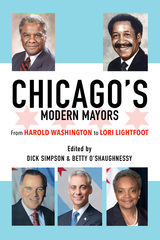87 have author last names that start with K have author last names that start with K
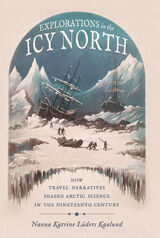
Science in the Arctic changed dramatically over the course of the nineteenth century, when early, scattered attempts in the region to gather knowledge about all aspects of the natural world transitioned to a more unified Arctic science under the First International Polar Year in 1882. The IPY brought together researchers from multiple countries with the aim of undertaking systematic and coordinated experiments and observations in the Arctic and Antarctic. Harsh conditions, intense isolation, and acute danger inevitably impacted the making and communicating of scientific knowledge. At the same time, changes in ideas about what it meant to be an authoritative observer of natural phenomena were linked to tensions in imperial ambitions, national identities, and international collaborations of the IPY. Through a focused study of travel narratives in the British, Danish, Canadian, and American contexts, Nanna Katrine Lüders Kaalund uncovers not only the transnational nature of Arctic exploration, but also how the publication and reception of literature about it shaped an extreme environment, its explorers, and their scientific practices. She reveals how, far beyond the metropole—in the vast area we understand today as the North American and Greenlandic Arctic—explorations and the narratives that followed ultimately influenced the production of field science in the nineteenth century.
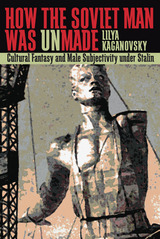
In How the Soviet Man Was Unmade, Lilya Kaganovsky exposes the paradox behind the myth of the indestructible Stalinist-era male. In her analysis of social-realist literature and cinema, she examines the recurring theme of the mutilated male body, which appears with startling frequency. Kaganovsky views this representation as a thinly veiled statement about the emasculated male condition during the Stalinist era. Because the communist state was “full of heroes,” a man could only truly distinguish himself and attain hero status through bodily sacrifice-yet in his wounding, he was forever reminded that he would be limited in what he could achieve, and was expected to remain in a state of continued subservience to Stalin and the party.
Kaganovsky provides an insightful reevaluation of classic works of the period, including the novels of Nikolai Ostrovskii (How Steel Was Tempered) and Boris Polevoi (A Story About a Real Man), and films such as Ivan Pyr'ev's The Party Card, Eduard Pentslin's The Fighter Pilots, and Mikhail Chiaureli's The Fall of Berlin, among others. The symbolism of wounding and dismemberment in these works acts as a fissure in the facade of Stalinist cultural production through which we can view the consequences of historic and political trauma.


In Re-reading Poets, Paul Kameen offers a deep reflection on the importance of poets and poetry to the reader. Through his historical, philosophical, scholarly, and personal commentary on select poems, Kameen reveals how these works have helped him form a personal connection to each individual poet. He relates their profound impact not only on his own life spent reading, teaching, and writing poetry, but also their potential to influence the lives of readers at every level.
In an examination of works by William Wordsworth, Samuel Taylor Coleridge, Walt Whitman, and others, Kameen seeks to sense each author’s way of seeing, so that author and reader may meet in a middle ground outside of their own entities where life and art merge in deeply intimate ways. Kameen counters ideologies such as New Criticism and poststructuralism that marginalize the author, and instead focuses on the author as a vital presence in the interpretive process. He analyzes how readers look to the past via “tradition,” conceptualizing history in ways that pre-process texts and make it difficult to connect directly to authors. In this vein, Kameen employs examples from T. S. Eliot, Martin Heidegger, and Mikhail Bakhtin.
Kameen examines how people become poets and how that relates to the process of actually writing poems. He tells of his own evolution as a poet and argues for poetry as a means to an end beyond the poetic, rather than an end in itself. In Re-reading Poets, Kameen’s goal is not to create a new dictum for teaching poetry, but rather to extend poetry’s appeal to an audience far beyond academic walls.
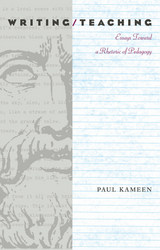
2001 CCCC Outstanding Book Award
The vast majority of academic books are written from the scholar’s position, even those that primarily concern teaching. Writing/Teaching, on the other hand, is a book about teaching written from the position of the teacher. As the title suggests, Kameen’s book is split into two halves—yet both, in different ways and through different discourses, are derived from his work in the classroom, and his own struggle with issues and problems all teachers of writing must face.
The first half is a series of essays originating from a graduate seminar Kameen team-taught with professor and poet Toi Derricotte in 1994. Included are essays Kameen wrote, a selection of pieces written by other members of the group, and a reflective “postscript.” These essays combine personal narrative, reflective meditation, and critical inquiry—all used as discourse to depict and examine the process of teaching.
The second half of the book contains essays on Plato’s dialogues—primarily Phaedrus and Protagoras—as a means to interrogate the position of teacher through the lens of the most famous of Western pedagogues—Socrates. Here, Socrates is used as a tool to examine and critique both Kameen’s own teacherly identity and, in a wider sense, the set of cultural forces that pre-figure the available positions for both “teacher” and “student” in contemporary education.
What unites both halves is the way Kameen approaches each—the “personal” and the “scholarly”—from his position as teacher. The texts presented provide the occasion for a complex and nuanced meditation on the classroom as a legitimate arena for the production of knowledge and research. Sure to be timely and controversial, Writing/Teaching will enter into the debate on whether to reconfigure the relationship between research and teaching currently taking place among teachers of composition, cultural studies, and rhetoric. Compelling reading for teachers or those contemplating a career in the profession.
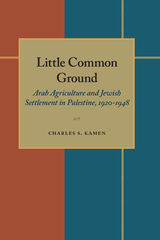

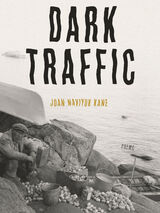
Dark Traffic creates landmarks through language, by which its speakers begin to describe traumas in order to survive and move through them. With fine detail and observation, these poems work in some way like poetic weirs: readers of Kane’s work will see the artic and subarctic, but also, more broadly, America, and the exigencies of motherhood, indigenous experience, feminism, and climate crises alongside the near-necropastoral of misogyny, violence, and systemic failures. These contexts catch the voice of the poems’ speakers, and we perceive the currents they create.

Selected by Arthur Sze
Hyperboreal originates from diasporas. It attempts to make sense of change and to prepare for cultural, climate, and political turns that are sure to continue. The poems originate from the hope that our lives may be enriched by the expression of and reflection on the cultural strengths inherent to indigenous culture. It concerns King Island, the ancestral home of the author's family until the federal government's Bureau of Indian Affairs forcibly and permanently relocated its residents. The poems work towards the assembly of an identity, both collective and singular, that is capable of looking forward from the recollection and impact of an entire community's relocation to distant and arbitrary urban centers. Through language, Hyperboreal grants forum to issues of displacement, lack of access to traditional lands and resources and loss of family that King Island people—and all Inuit—are contending with.
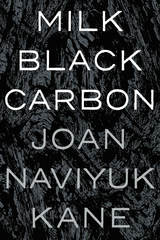

The Once and Future Muse presents the first major study of the life and work of Dominican-born bilingual American poet and translator Rhina P. Espaillat (b. 1932). Beginning with her literary celebrity as the youngest poet ever inducted into the Poetry Society of America, it traces her relative obscurity after 1952 when she married and took on family and employment responsibilities, to her triumphant return to the poetry spotlight decades later when she reclaimed her former prestige with a series of award-winning poetry collections.
The authors define Espaillat's place in American letters with attention to her formalist aesthetics, Hispanic Caribbean immigrant background, poetic community building, bilingual ethos, and domestically minded woman-of-color feminism. Addressing the temporality of her oeuvre—her publishing before and after the splitting of American literature into distinct ethnic segments—this work also highlights the demands that the social transformations of the 1960s placed on literary artists, critics, and readers alike.

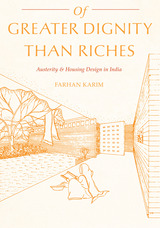
As India moved from colonial rule to independence, the Indian government, business entities, international NGOs, and intergovernmental agencies took major initiatives to modernize housing conditions and the domestic environment of the state’s low-income population. Of Greater Dignity than Riches traces multiple international origins of austerity as an essential ingredient of postcolonial development. By prescribing model villages, communities, and ideal houses for the working class, this project of austerity eventually reduced poverty into a stylized architectural representation. In this rich and original study, Karim explains the postwar and postcolonial history of low-cost housing as an intertwined process of global transferences of knowledge, Cold War cultural politics, postcolonial nationalism, and the politics of economic development.



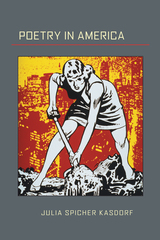
Poetry in America offers extravagantly formed lyric and narrative poems that function like works of social realism for our times: hard times, wartime, divorce, times of downturn and dissipated resources. Where, in such times, can poetry emerge, the book asks—and answers—again and again. Largely set in rural places and small towns, these poems are politically committed but deeply sensuous, emotionally complex and compassionate. They take up the everyday in meaningful ways, and deliver it with blunt force, yet not without hope or bright humor.

The poems in this book deal with life in a Pennsylvania Mennonite community and the tensions and conflicts that exist for the speaker as she tries to be true to two worlds, the other being New York City.
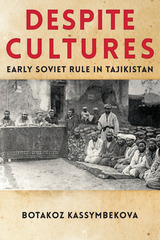
In a region marked by ethnic, linguistic, and cultural diversity, the Soviet plan was to recognize these differences while subsuming them within the conglomerate of official Soviet culture. As Kassymbekova reveals, the local ruling system was built upon an intricate network of individuals, whose stated loyalty to communism was monitored through a chain of command that stretched from Moscow through Tashkent to Dushanbe/Stalinabad. The system was tenuously based on individual leaders who struggled to decipher the language of Bolshevism and maintain power through violent repression.
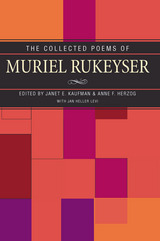
Muriel Rukeyser held a visionary belief in the human capacity to create social change through language. She earned an international reputation as a powerful voice against enforced silences of all kind, against the violence of war, poverty, and racism. Her eloquent poetry of witness-of the Scottsboro Nine, the Spanish Civil War, the poisoning of the Gauley Bridge laborers-split the darkness covering a shameful world.
In addition to the complete texts of her twelve previously published books, this volume also features new poems discovered by the editors; Rukeyser's translations, including the first English translations of Octavio Paz's work; early work by Rukeyser not previously published in book form; and the controversial book-length poem Wake Island. An introduction by the editors traces Rukeyser's life and literary reputation and complements discerning annotations and textual notes to the poems.
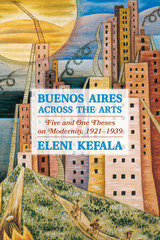
By 1920 Buenos Aires was the largest and most cosmopolitan city of Latin America due to mass immigration from Europe in the previous decades. Unbridled urban expansion had drastic effects on the social and cultural topography of the Argentine capital, raising ideological and aesthetic issues that shaped the modernist landscape of the country. Artists across disciplines responded to these changes with conflicting depictions of urban space. Centering these conflicts as a cognitive map of modernity’s new realities in the city, Buenos Aires across the Arts looks at the interaction between modernity and modernism in literature, photography, film, and painting during the interwar period. This was a time of profound change and heightened cultural activity in Argentina. Eleni Kefala analyzes works by Jorge Luis Borges, Oliverio Girondo, José Ferreyra, Xul Solar, Roberto Arlt, and Horacio Coppola, with a focus on the city of Buenos Aires as a playground of modernity.
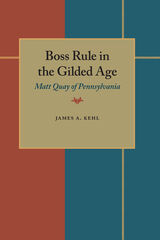

--American Poetry Review

The U.S. war in Iraq was not only an intelligence failure—it was a failure in democratic discourse. Hitting First offers a critical analysis of the political dialogue leading up to the American embrace of preventive war as national policy and as the rationale for the invasion and occupation of Iraq. Taking as its point of departure the important distinction between preemptive and preventive war, the contributors examine how the rhetoric of policy makers conflated these two very different concepts until the public could no longer effectively distinguish between a war of necessity and a war of choice.
Although the book focuses on recent events, Hitting First takes into consideration the broader historical, ethical, and legal context of current American policies. Precedents are examined for preventive military action based on conventional as well as nuclear, biological, and chemical weapons threats. The authors also consider recent examples of the rhetoric of “humanitarian intervention,” which have tended to undermine traditional notions of national sovereignty, making purportedly “morally justifiable” actions easier to entertain. Intelligence gathering and its use, manipulation, and distortion to suit policy agendas are also analyzed, as are the realities of the application of military force, military requirements to sustain a policy of preventive war, and post-conflict reconstruction.
Hitting First presents a timely and essential view of the lessons learned from the failures of the Iraqi conflict, and offers a framework for avoiding future policy breakdowns through a process of deliberative public and governmental debate within a free market of ideas. The critiques and prescriptions offered here provide a unique and valuable perspective on the challenges of formulating and conduct of national security policy while sustaining the principles and institutions of American democracy. This collection will appeal to students and scholars of American foreign policy, international relations, political communication, and ethics.
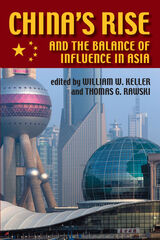
China's protracted boom and political transformation is a major episode in the history of global political economy. Beginning in the late 1970s, China experienced a quarter century of extraordinary growth that raised every indicator of material welfare, lifted several hundred million out of poverty, and rocketed China from near autarky to regional and even global prominence. These striking developments transformed China into a major U.S. trade and investment partner, a regional military power, and a major influence on national economies and cross-national interchange throughout the Pacific region. Beijing has emerged as a voice for East Asian economic interests and an arbiter in regional and even global diplomacy-from the Asian financial crisis to the North Korean nuclear talks. China's accession to the World Trade Organization promises to accentuate these trends.
The contributors to this volume provide a multifaceted examination of China in the areas of economics, trade, investment, politics, diplomacy, technology, and security, affording a greater understanding of what relevant policies the United States must develop. This book offers a counterweight to overwrought concerns about the emerging “Chinese threat” and makes the case for viewing China as a force for stability in the twenty-first century.

This collection of essays draws on writings from mythologists, sociologists, philosophers, historians, and political activists, to present perspectives on the techniques, philosophies, and theories of political leadership throughout history. The forty-three selections offer a broad range of thought and provide a uniquely comprehensive reference.

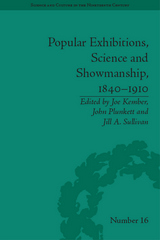

The vision of a central waterway connecting tidewater Virginia with the Ohio River to rival the Erie Canal persisted for decades during the 19th century. The idea was at first fostered by the commonwealth of Virginia and then reincarnated as the Central Water Line, which was endorsed by the federal government. It was a grand vision, and though never implemented, the Great Kanawha Navigation nevertheless became a highly successful regionally controlled waterway that developed the rich resources of the Kanawha Valley. Emory Kemp has compiled a comprehensive history of navigation on the Great Kanawha River, detailing the industrial archaeology of this waterway from the early 19th century, and offering a detailed case study of a major 19th- and early 20th-century civil engineering project that would significantly advance the nation's industrial development.
Using the early unsuccessful attempts to connect the James River and western waters as a background, The Great Kanawha Navigation emphasizes technological innovation and construction of navigational structures on the river. With the river men championing open navigation during favorable stages of the river, and at the same time clamoring for controls to ensure navigation during periods of low flow, the Corps of Engineers responded with the concept of the movable dam to provide a cost-effective means of moving bulk cargo, especially coal, salt, lumber, cement, and chemicals, along nearly 100 miles of the Great Kanawha River. The Great Kanawha Navigation employed a series of ten locks and dams and became a laboratory for the use of movable dams in the United States, using first the French Chanoine shutter wicket dam and then the German Roller Gate dam. The innovative technology of the ten dams, the volume of freight carried and the management of the system by the Corps of Engineers made this one of the most significant public works in the nation. Each of the two systems provided cost-effective and environmentally sound means to tap the rich mineral resources of the Kanawha Valley. By any measure, the Great Kanawha Navigation has been one of the more successful ventures of the Corps of Engineers; Kemp has provided extensive photographs, illustrations, diagrams, and maps to further emphasize the construction of the various hydraulic structures. The result is an interesting and significant blend of biographical, technical, political, geographical, and industrial history that will delight historians of technology and the region.

A comprehensive biography of the Seceretary of State and Comendador for the kingdom of Castile under Emperor Charles I of Spain.

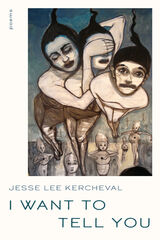
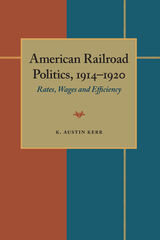
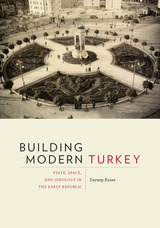
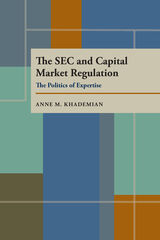
Anne M. Khademian addresses the significance of the SEC for securities policy and uses the agency as a model for the study of bureaucracy and bureaucratic theory. She examines the interaction of bureaucrats, politicians and the White House, and connects early debates in the field of public administration with the contemporary arguments of rational choice scholars concerning independence.
The classic tension within U.S. federal agencies is between the need to hold bureaucrats politically accountable to elected officials and the need to delegate complex decision making to officials with “independent” expertise. In the SEC this tension is especially pronounced because of the agency's dependence on attorneys and economists. Khademian traces the development of a regulatory strategy from the creation of the SEC by FDR in 1934 to the present, examines the roles of SEC experts and their political overseers in Congress as they create policy, and evaluates the stability of that policy. Her study reveals how the tug-of-war between demands for accountability and giving freedom to expertise has affected the agency's evolution and its regulatory activities.


—Publishers Weekly

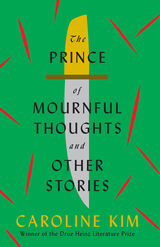
Finalist, 2021 Northern California Book Award
Longlist, 2021 PEN/Robert Bingham Prize
Longlist, 2020 The Story Prize
Exploring what it means to be human through the Korean diaspora, Caroline Kim’s stories feature many voices. From a teenage girl in 1980’s America, to a boy growing up in the middle of the Korean War, to an immigrant father struggling to be closer to his adult daughter, or to a suburban housewife whose equilibrium depends upon a therapy robot, each character must face their less-than-ideal circumstances and find a way to overcome them without losing themselves. Language often acts as a barrier as characters try, fail, and momentarily succeed in connecting with each other. With humor, insight, and curiosity, Kim’s wide-ranging stories explore themes of culture, communication, travel, and family. Ultimately, what unites these characters across time and distance is their longing for human connection and a search for the place—or people—that will feel like home.
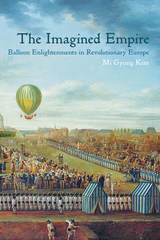
The Imagined Empire explores how this material artifact, the flying machine, not only expanded the public for science and spectacle but also inspired utopian dreams of a republican monarchy that would obliterate social boundaries. The balloon, Mi Gyung Kim argues, was a people-machine, a cultural performance that unified and mobilized the people of France, who imagined an aerial empire that would bring glory to the French nation. This critical history of ballooning considers how a relatively simple mechanical gadget became an explosive cultural and political phenomenon on the eve of the French Revolution.
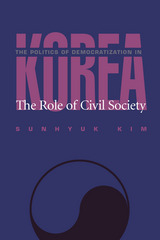
What role did civil society play in Korea's recent democratization? How does the Korean case compare with cases from other regions of the world? What is the current status of Korean democratic consolidation? What are the prospects for Korean democracy?
In December 1997, for the first time in the history of South Korea (hereafter Korea), an opposition candidate was elected to the presidency. Korea became the first new democracy in Asia where a horizontal transfer of power occurred through the electoral process. Sunhyuk Kim's study of democratization in Korea argues that the momentum for political change in Korea has consistently emanated from oppositional civil society rather than from the state. He develops a civil society paradigm and utilizes Korea’s three authoritarian breakdowns (only two of which resulted in democratic transitions) to illustrate the past and present influences of Korean civil society groups on authoritarian breakdowns, democratic transitions, and post-transition democratic consolidations.
One of the first systematic attempts to apply a civil society framework to a democratizing country in East Asia, The Politics of Democratization in Korea will be of use to political scientists and advanced undergraduate and graduate students working in comparative politics, political theory, East Asian politics, and the politics of democratization.

Translingual Inheritance tells a new story of the early days of democracy in the United States, when English had not yet become the only dominant language. Drawing on translingual theory, which exposes how language use contrasts with the political constructions of named languages, Elizabeth Kimball argues that Philadelphians developed complex metalinguistic conceptions of what language is and how it mattered in their relations. In-depth chapters introduce the democratically active communities of Philadelphia between 1750 and 1830 and introduce the three most populous: Germans, Quakers (the Society of Friends), and African Americans. These communities had ways of knowing and using their own languages to create identities and serve the common good outside of English. They used these practices to articulate plans and pedagogies for schools, exercise their faith, and express the promise of the young democracy. Kimball draws on primary sources and archival texts that have been little seen or considered to show how citizens consciously took on the question of language and its place in building their young country and how such practice is at the root of what made democracy possible.


Kindler provides an in-depth analysis of Soviet rule, economic and political motivations, and the role of remote and local Soviet officials and Kazakhs during the crisis. This is the first English-language translation of an important and harrowing history, largely unknown to Western audiences prior to Kindler’s study.
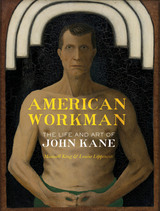
American Workman presents a comprehensive, novel reassessment of the life and work of one of America’s most influential self-taught artists, John Kane. With a full account of Kane’s life as a working man, including his time as a steelworker, coal miner, street paver, and commercial painter in and around Pittsburgh in the early twentieth century, the authors explore how these occupations shaped his development as an artist and his breakthrough success in the modern art world. A rough-and-tumble blue-collar man prone to brawling and drinking, Kane also sought out beauty in the industrial world he inhabited. This Kane paradox—brawny and tough, sensitive and creative—was at the heart of much of the public’s interest in Kane as a person. The allure of the Kane saga was heightened all the more by the fact that he did not achieve renown until he was at the age at which most people are retiring from their professions. Kane’s dedication to painting resulted in a fascinating body of work that has ended up in some of America’s most important museums and private collections. His dramatic life story demonstrates the courage, strength, and creativity of his generation of workmen. They may be long gone, but thanks to Kane they cannot be forgotten.
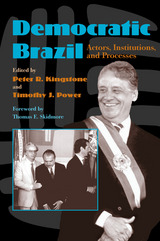
After 21 years of military rule, Brazil returned to democracy in 1985. Over the past decade and a half, Brazilians in the Nova República (New Republic) have struggled with a range of diverse challenges that have tested the durability and quality of the young democracy. How well have they succeeded? To what extent can we say that Brazilian democracy has consolidated? What actors, institutions, and processes have emerged as most salient over the past 15 years? Although Brazil is Latin America's largest country, the world's third largest democracy, and a country with a population and GNP larger than Yeltsin's Russia, more than a decade has passed since the last collaborative effort to examine regime change in Brazil, and no work in English has yet provided a comprehensive appraisal of Brazilian democracy in the period since 1985.
Democratic Brazil analyzes Brazilian democracy in a comprehensive, systematic fashion, covering the full period of the New Republic from Presidents Sarney to Cardoso. Democratic Brazil brings together twelve top scholars, the “next generation of Brazilianists,” with wide-ranging specialties including institutional analysis, state autonomy, federalism and decentralization, economic management and business-state relations, the military, the Catholic Church and the new religious pluralism, social movements, the left, regional integration, demographic change, and human rights and the rule of law. Each chapter focuses on a crucial process or actor in the New Republic, with emphasis on its relationship to democratic consolidation. The volume also contains a comprehensive bibliography on Brazilian politics and society since 1985. Prominent Brazilian historian Thomas Skidmore has contributed a foreword to the volume.
Democratic Brazil speaks to a wide audience, including Brazilianists, Latin Americanists generally, students of comparative democratization, as well as specialists within the various thematic subfields represented by the contributors. Written in a clear, accessible style, the book is ideally suited for use in upper-level undergraduate courses and graduate seminars on Latin American politics and development.
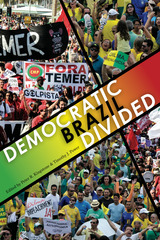
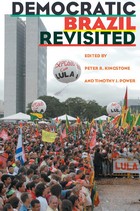
The 2002 election of Lula da Silva and his Worker's Party promised a radical shift toward progressive reform, transparency, and accountability, opposing the earlier centrist and market-oriented policies of the Cardoso government. But despite the popular support reflected in his 2006 reelection, many observers claim that Lula and his party have fallen short of their platform promises. They have moved to the center in their policies, done little to change the elitist political culture of the past, and have engaged in “politics as usual” in executive-legislative relations, leading to allegations of corruption.
Under these conditions, democracy in Brazil remains an enigma. Progress in some areas is offset by stagnation and regression in others: while the country has seen renewed economic growth and significant progress in areas of health care and education, the gap between rich and poor remains vast. Rampant crime, racial inequality, and a pandemic lack of personal security taint the vision of progress. These dilemmas make Brazil a particularly striking case for those interested in Latin America and democratization in general.

Using educational works of Erasmus, Ascham, and others, commentaries on literary works, various kinds of religious guides and homilies, and self-improvement books, Kintgen has found specific evidence of these differences and makes imaginative use of it to draw fascinating and convincing conclusions about the art and practice of reading. Kintgen ends by situating the book within literary theory, cognitive science, and literary studies.
Among the writers covered are Gabriel Harvey, E. K. (the commentator on The Shepheardes Calendar), Sir John Harrington, George Gascoigne, George Puttenham, Thomas Blundeville, and Angel Day.

A collection of original essays dealing with many aspects of the complex problems of arms control, this volume provides an understanding of the political, strategic, technological, and bureaucratic constraints affecting the development of arms control policies by major powers. Among the diverse subjects examined are American and Soviet interests in arms control, and the rationale for arms control in alternative international systems based upon either bipolarity or multipolarity.
The volume also includes a discussion of the critical technological factors which have important implications for the Strategic Arms Limitations Talks (SALT), an examination of structural change in the international system, the emergence of additional centers of power, and the implications of SALT for would-be nuclear powers.
Contributors: Robert R. Bowie, J. I. Coffey, James E. Dougherty, Wynfred Joshua, Geoffrey Kemp, Takeshi Muramatsu, George H. Quester, Robert A. Scalapino, Ian Smart, William R. Van Cleave, Thomas W. Wolfe, and the editors.
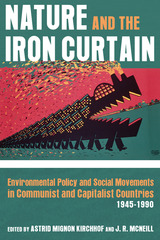

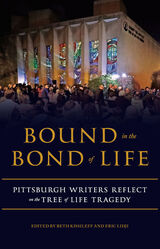
On October 27, 2018, three congregations were holding their morning Shabbat services at the Tree of Life Synagogue in Pittsburgh’s Squirrel Hill neighborhood when a lone gunman entered the building and opened fire. He killed eleven people and injured six more in the deadliest anti-Semitic attack in American history. The story made international headlines for weeks following the shooting, but Pittsburgh and the local Jewish community could not simply move on when the news cycle did.
The essays in this anthology, written by local journalists, academics, spiritual leaders, and other community members, reveal a city’s attempts to come to terms with an unfathomable horror. Here, members from each of the three impacted congregations are able to reflect on their experiences in a raw, profound way. Local journalists who covered the story as it unfolded explore the personal and public aspects of reporting the news. Activists consider their work at a calm distance from the chaotic intensity of their daily efforts. Academics mesh their professional expertise with their personal experiences of this shattering event in their hometown. A local rabbi shares his process for crafting messages of comfort even as he attempts to reckon with his own feelings.
Bringing these local voices together into a chorus raises them over the din of international chroniclers who offer important contributions but cannot feel the intensity of this tragedy in the same way as Pittsburghers. The essays in this anthology tell a collective story of city shaken to its very core, but determined that love will ultimately win.
A portion of the proceeds from the sale of this book will go to Jewish Family and Community Service of Pittsburgh (https://www.jfcspgh.org/), which serves individuals and families of all faiths throughout the Greater Pittsburgh community.

In Endurable Infinity, Tony Kitt creates his own tangential surrealism through wonder, intuition, and surprising connections. If the original surrealists of the 1930s sought to unleash the unconscious mind by bringing elements of dreams to the waking world with jarring juxtapositions, Kitt’s poetry is more about transmutation, or leaps, from word to word and phrase to phrase. He takes American poet Charles Borkhuis’s statement that contemporary surrealist poets write “from inside language” as a challenge and a call to action.
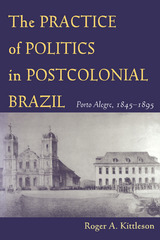
The Practice of Politics in Postcolonial Brazil traces the history of high and low politics in nineteenth-century Brazil from the vantage point of the provincial capital of Porto Alegre. In the immediate postcolonial period, new ideas about citizenship and freedom were developing, and elites struggled for control of the state as the lower classes sought inclusion in political life. In a shift from the Liberal Party to Positivist or Conservative rule during the bloody Federalist Revolt of 1893–1895, new leaders sought to bring about a more balanced structure of government where the capitalist was sympathetic to the worker, and the worker more passive toward the elite. This represented a complete change of opinions—a new regime of ideas. Termed a “scientific” approach by its proponents, the movement was based on historical process and would be brought about through civic education.
Against the backdrop of the abolition of slavery and subsequent assimilation, the rise of European immigration, and industrialization, Kittleson investigates how “the people” shaped changing political ideologies and practices, and how through local struggles and changes in elite ideology, the lower classes in Porto Alegre won limited political inclusion that was denied elsewhere.

Winner, 2020 NCA Top Single-Author Book of the Year Award
Fred Rogers is an American cultural and media icon, whose children’s television program, Mister Rogers’ Neighborhood, ran for more than thirty years (1967-2001) on the Public Broadcasting System. In this highly original book, communication scholar Alexandra C. Klarén shows how Rogers captured the moral, social, and emotional imaginations of multiple generations of Americans. She explores the nuanced complexity of the thought behind the man and the program, the dialogical integration of his various influences, and the intentional ethic of care behind the creation of a program that spoke to the affective, cultural, and educational needs of children (and adults) during a period of cultural and political upheaval. Richly informed by newly available archival materials, On Becoming Neighbors chronicles the evolution of Rogers’ thought on television, children, pedagogy, and the family through a rhetorical, cultural, and ethical lens. Klarén probes how Rogers creates the conditions for dialogue in which participants explore possibilities and questions relating to the social and material world.
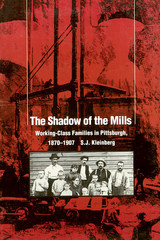
The profound disruption of family relationships caused by industrialization found its most dramatic expression in the steel mills of Pittsburgh in the 1880s. The work day was twelve hours, and the work week was seven days - with every other Sunday for rest.
In this major work, S. J. Kleinberg focuses on the private side of industrialization, on how the mills structured the everyday existence of the women, men, and children who lived in their shadows. What did industrialization and urbanization really mean to the people who lived through the these processes? What solutions did they find to the problems of low wages, poor housing, inadequate sanitation, and high mortality rates?
Through imaginative use of census data, the records of municipal, charitable, and fraternal organizations, and the voices of workers themselves in local newspapers, Kleinberg builds a detailed picture of the working-class life cycle: marital relationships, the interaction between parents and children, the education and employment prospects of the young, and the lives if the elderly.
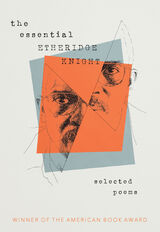

In the 1960s –1970s era of anti-institutional sentiment, they hoped to offer an enlightened, palatable, more humane solution to larger social problems related to health, mental health, justice, and security of the population by applying psychological expertise to institutional design. In turn, Knoblauch argues, architects gained new roles as researchers, organizers, and writers while theories of confinement, territory, and surveillance proliferated. The Architecture of Good Behavior explores psychological functionalism as a political tool and the architectural projects funded by a postwar nation in its efforts to govern, exert control over, and ultimately pacify its patients, prisoners, and residents.

The four sections in Rivers Lost, Rivers Regained discuss how cities have gained control and exerted power over rivers and waterways far upstream and downstream; how rivers and floodplains in cityscapes have been transformed by urbanization and industrialization; how urban rivers have been represented in cultural manifestations, such as novels and songs; and how more recent strategies work to redefine and recreate the place of the river within the urban setting.
At the nexus between environmental, urban, and water histories, Rivers Lost, Rivers Regained points out how the urban-river relationship can serve as a prime vantage point to analyze fundamental issues of modern environmental attitudes and practices.



In a poetic voice that is at once reflective and lively, Sandra Kohler explores the patterns of everyday life and the inner drama of imagination. Though these poems are mostly set amidst the familiarity of a suburban household and the family garden, this environment appears far from mundane as Kohler peels away the veneer of domestic tranquility to reveal a world busy with human passion and the rhythms of the earth. Nature is present at every turn, an ethereal twin, as the narrator’s emotions take the form of cardinals in flight, a rushing river, or a potato sprouting from the dark.


In Flying at Night: Poems 1965-1985, Kooser has selected poems from two of his earlier works, Sure Signs and One World at a Time (1985). Taken together or read one at a time, these poems clearly show why William Cole, writing in the Saturday Review, called Ted Kooser "a wonderful poet," and why Peter Stitt, writing in the Georgia Review, proclaimed him "a skilled and cunning writer. . . . An authentic 'poet of the American people.'"

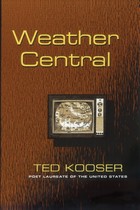

On July 9, 1755, an army of British and American soldiers commanded by Major General Edward Braddock marched toward a major western outpost held by the French, confident of an easy victory. Suddenly, they were attacked by a much smaller force of French and Indian fighters-Braddock's army was destroyed, its commander fatally wounded, and supplies and secret papers were lost to the enemy. Paul E. Kopperman has used all of the known eyewitness reports of Braddock's defeat-some never before printed-to present an exciting critical account of this definitive battle in the French and Indian War. Braddock at the Monongahela is a synthesis of in-depth analysis of primary source materials, thoughtful evaluation of previous studies on the subject, and Kopperman's own persuasive interpretation.

The Afterlife of Austria-Hungary examines histories, journalism, and literature in the period between world wars to expose both the positive and the negative treatment of the Habsburg monarchy following its dissolution and the powerful influence of fiction and memory over history. Originally published in Polish, Adam Kozuchowski’s study analyzes the myriad factors that contributed to this phenomenon. Chief among these were economic depression, widespread authoritarianism on the continent, and the painful rise of aggressive nationalism. Many authors of these narratives were well-known intellectuals who yearned for the high culture and peaceable kingdom of their personal memory.
Kozuchowski contrasts these imaginaries with the causal realities of the empire’s failure. He considers the aspirations of Czechs, Poles, Romanians, Hungarians, and Austrians, and their quest for autonomy or domination over their neighbors, coupled with the wave of nationalism spreading across Europe. Kozuchowski then dissects the reign of the legendary Habsburg monarch, Franz Joseph, and the lasting perceptions that he inspired.
To Kozuchowski, the interwar discourse was a reaction to the monumental change wrought by the dissolution of Austria-Hungary and the fear of a history lost. Those displaced at the empire’s end attempted, through collective (and selective) memory, to reconstruct the vision of a once great multinational power. It was an imaginary that would influence future histories of the empire and even became a model for the European Union.
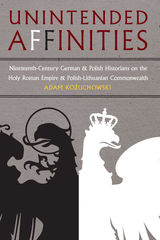
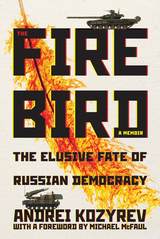
Andrei Kozyrev was foreign minister of Russia under President Boris Yeltsin from August 1991 to January 1996. During the August 1991 coup attempt against Mikhail Gorbachev, he was present when tanks moved in to seize the Russian White House, where Boris Yeltsin famously stood on a tank to address the crowd assembled. He then departed to Paris to muster international support and, if needed, to form a Russian government-in-exile. He participated in the negotiations at Brezhnev’s former hunting lodge in Belazheva, Belarus where the leaders of Russia, Ukraine, and Belarus agreed to secede from the Soviet Union and form a Commonwealth of Independent States. Kozyrev’s pro-Western orientation made him an increasingly unpopular figure in Russia as Russia’s spiraling economy and the emergence of ultra-wealthy oligarchs soured ordinary Russians on Western ideas of democracy and market capitalism.
The Firebird takes the reader into the corridors of power to provide a startling eyewitness account of the collapse of the Soviet Union, the struggle to create a democratic Russia in its place, and how the promise of a better future led to the tragic outcome that changed our world forever.

In analyzing films by Andrzej Wajda, Krzysztof Kieslowsi, Krzysztof Zanussi, Wojciech Has, and Tadeusz Konwicki alongside Konwicki’s literary production, Anna Krakus identifies their shared penchant to defer or completely eschew narrative closure, whether in plot, theme, or style. Krakus calls this artistic tendency "aesthetic unfinalizability." As she reveals, aesthetic unfinalizability was far more than an occasional artistic preference or a passing trend; it was a radical counterpolitical act. The obsession with historical teleology saturated Polish public life during socialism to such a degree that instances of nonclosure or ambivalent endings emerged as polemical responses to official ideology.
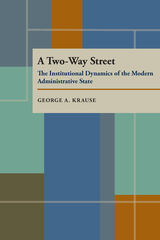
One of the central questions of political science has been whether politicians control the bureaucracy, or whether the bureaucracy possesses independent authority from democratic institutions of government. Relying on advanced statistical techniques and case studies, George Krause argues instead for a dynamic system of influence—one allowing for two-way interaction among the president, congress, and bureaucratic agencies. Krause argues that politicians and those responsible for implementing policy respond not only to each other, but also to events and conditions within each government institution as well as to the larger policy environment. His analysis and conclusions will challenge conventional theoretical and empirical wisdom in the field of administrative politics and public bureaucracy.

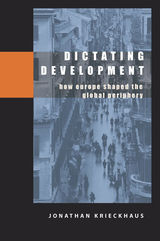
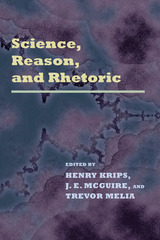

Nations use product standards, and manipulate them, for reasons othen than practical use or safety. The Soviets once cultivated standards to isolate themselves. In the United States, codes and standards are often used to favor home industries over external competition, and to favor some producers over others. Krislov compares and contrasts the United States, the EC, the forner Eastern bloc, and Japan, to link standard choice with political styles and to trace growing internationalization based on product efficiency criteria.

Cuban Studies 41 presents topics from across the cultural and political spectrum, including essays on: the ideology behind United States foreign policy toward Cuba; a gendered study of Cubans who migrate to other countries; Cuban social policy on inequality; fifty years of Cuban medical diplomacy; the fifty-year relationship between Havana and Moscow; film posters from ICAIC (Cuban Institute for Cinematographic Arts) that promoted the exhibition of Cuban and foreign films for the first time, created a new graphic movement, and transformed the look of Cuban cities and buildings; national cultural policy and the visual arts in the aftermath of the “Grey Years;” and a look at the global influence of Havana cigars.

Cuban Studies is the preeminent journal for scholarly work on Cuba. Each volume includes articles in English and Spanish and a large book review section. Cuban Studies has been published annually by the University of Pittsburgh Press beginning with volume 16 in 1985.
Cuban Studies 42 focuses on gender and equality issues in post-1959 Cuba, and their impact on cultural and institutional change. It views subjects such as politics, labor, food and diet, race, ethnicity, HIV/AIDS, sex education, tourism and prostitution, masculinity, and feminism, among others.
Beginning with Cuban Studies 34, the publication is available electronically through Project MUSE®. More information can be found at http://muse.jhu.edu/publishers/pitt_press/.

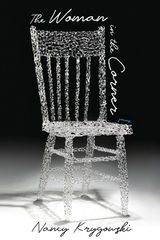
Excerpt from “The Woman in the Corner”
I cut a leaf from my mother’s blooming violet,
long alive past her death, to start a plant
for my daughter who I never knew as a baby—
born to a different woman—
but for whom I explained birth
control, blood, how to relax, push in a tampon,
what my mother never touched, her body
a child-making mystery that pushed me
into mystery. What is a woman
who doesn’t long for kids?
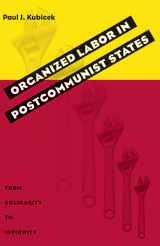
While some of labor's problems can be traced to legacies of the communist period, Kubicek draws upon the experience of unions in the West to argue that privatization and nascent globalization are creating new economic structures and a political playing field hostile to organized labor. He concludes that labor is likely to remain a marginalized economic and political force for the foreseeable.
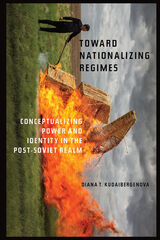
The collapse of the Soviet Union famously opened new venues for the theories of nationalism and the study of processes and actors involved in these new nation-building processes. In this comparative study, Kudaibergenova takes the new states and nations of Eurasia that emerged in 1991, Latvia and Kazakhstan, and seeks to better understand the phenomenon of post-Soviet states tapping into nationalism to build legitimacy. What explains this difference in approaching nation-building after the collapse of the Soviet Union? What can a study of two very different trajectories of development tell us about the nature of power, state and nationalizing regimes of the ‘new’ states of Eurasia? Toward Nationalizing Regimes finds surprising similarities in two such apparently different countries—one “western” and democratic, the other “eastern” and dictatorial.
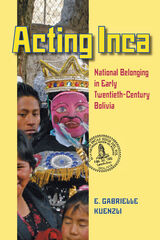
Kuenzli examines documents from the famous postwar Peñas Trial to recover Aymara testimony during what essentially became a witch hunt. She reveals that the Aymara served as both dutiful plaintiffs allied with liberals and unwitting defendants charged with wartime atrocities and instigating a race war.
To further combat their “Indian problem,” Creole liberals developed a public discourse that positioned the Inca as the only Indians worthy of national inclusion. This was justified by the Incas’ high civilization and reputation as noble conquerors, along with their current non-threatening nature. The “whitening” of Incans was a thinly veiled attempt to block the Aymara from politics, while also consolidating the power of the Liberal Party.
Kuenzli posits that despite their repression, the Aymara did not stagnate as an idle, apolitical body after the civil war. She demonstrates how the Aymara appropriated the liberal’s Indian discourse by creating theatrical productions that glorified Incan elements of the Aymara past. In this way, the Aymara were able to carve an acceptable space as “progressive Indians” in society. Kuenzli provides an extensive case study of an “Inca play” created in the Aymara town of Caracollo, which proved highly popular and helped to unify the Aymara.
As her study shows, the Amyara engaged liberal Creoles in a variety of ways at the start of the twentieth century, shaping national discourse and identity in a tradition of activism that continues to this day.
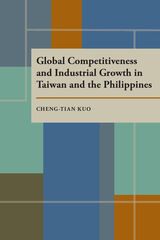
Kuo contrasts the economic evolutions of Taiwan and the Philippines as the product of government and industry relations. The two nations shared many economic similarities-yet Taiwan moved from clientelism to state corporatism, while in the Philippines clientelism remains deeply entrenched.
Kuo's case studies in the textile, plywood, and electronics industries support these general arguments. He finds that clientelism invariably leads to economic problems, while a laissez-faire approach is unpredictable. The best formula for industrial success in a developing nation is close cooperation between business and government.

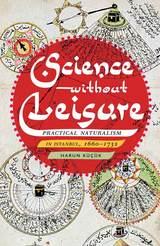
Science in seventeenth- and eighteenth-century Istanbul, Harun Küçük argues, was without leisure, a phenomenon spurred by the hyperinflation a century earlier when scientific texts all but disappeared from the college curriculum and inflation reduced the wages of professors to one-tenth of what they were in the sixteenth century. It was during this tumultuous period that philosophy and theory, the more leisurely aspects of naturalism—and the pursuit of “knowledge for knowledge’s sake”—vanished altogether from the city. But rather than put an end to science in Istanbul, this economic crisis was transformative, turning science into a practical matter, into something one learned through apprenticeship and provided as a service. In Science without Leisure, Küçük reveals how Ottoman science, when measured against familiar narratives of the Scientific Revolution, was remarkably far less scholastic and philosophical and far more cosmopolitan and practical. His book explains why as practical naturalists deployed natural knowledge to lucrative ends without regard for scientific theories, science in the Ottoman Empire over the long term ultimately became the domain of physicians, bureaucrats, and engineers rather than of scholars and philosophers.
READERS
Browse our collection.
PUBLISHERS
See BiblioVault's publisher services.
STUDENT SERVICES
Files for college accessibility offices.
UChicago Accessibility Resources
home | accessibility | search | about | contact us
BiblioVault ® 2001 - 2024
The University of Chicago Press


